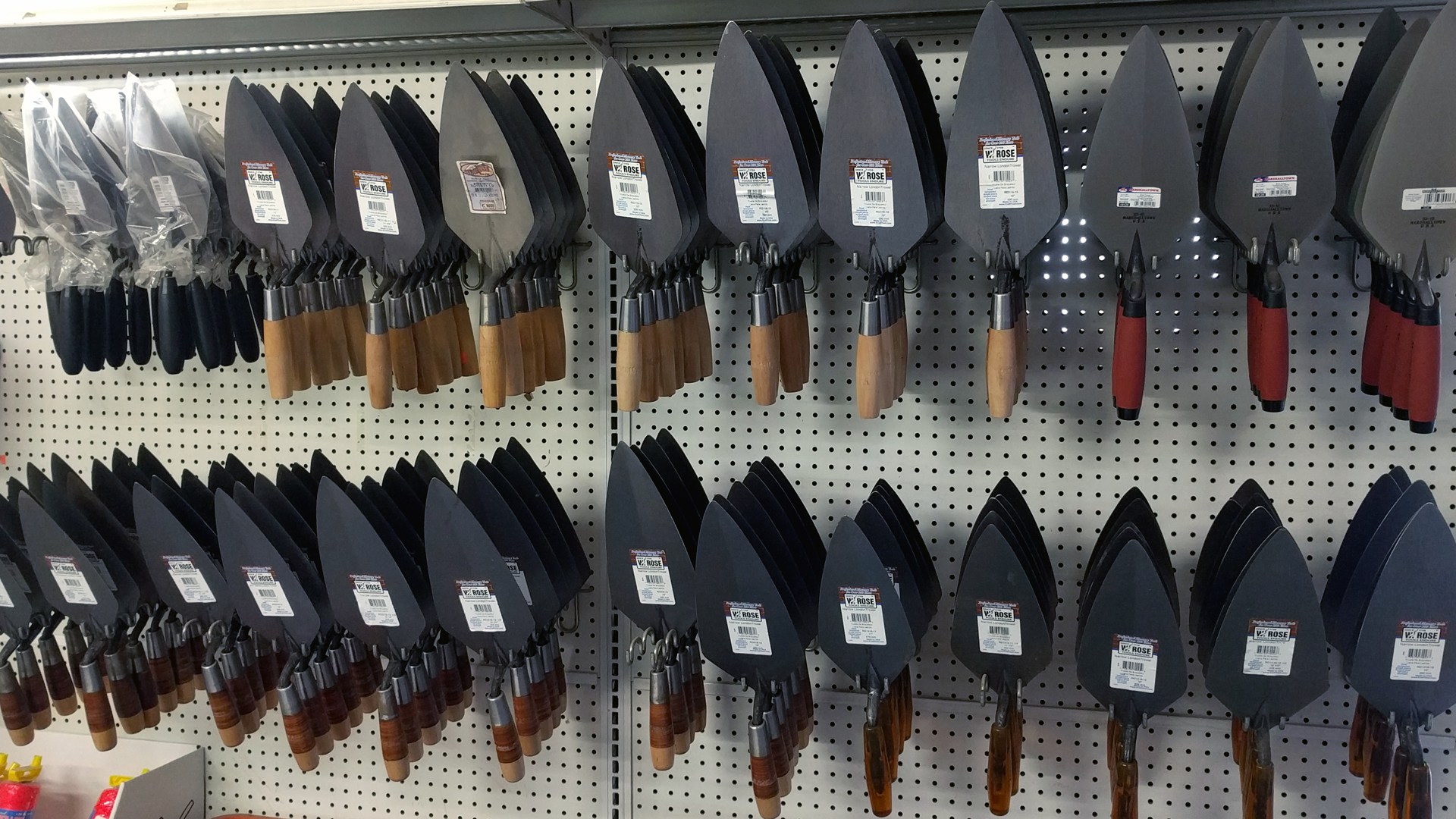
FREE SHIPPING ON
ALL QUALIFYING ORDERS
Enter your email below to join our mailing list:

Masonry trowels are a key tool in the construction industry, used to spread and shape mortar in brickwork and stonework. Among the many types of trowels, Rose trowels are a well-known and respected brand that has been in use for over a century. In this article, we will explore the history of Rose masonry trowels, their evolution over time, and their impact on the industry.
The origin of the Rose brand can be traced back to the early 1900s, when John Rose founded the J. Rose & Sons company in London, England. John Rose was a skilled toolmaker who recognized a need for high-quality masonry trowels that were durable and efficient. He began manufacturing his own line of trowels, which quickly gained a reputation for their strength and performance.
In the early years, Rose trowels were made using a traditional blacksmithing process, which involved heating and shaping the metal by hand. Each trowel was individually crafted, and the process was time-consuming and labor-intensive. However, the resulting trowels were of superior quality and quickly became popular among masons.
As the demand for Rose trowels grew, the company began to innovate and refine its manufacturing processes. In the 1920s, J. Rose & Sons introduced a new method of manufacturing trowels using machine presses. This allowed for greater precision and consistency in the production process, while still maintaining the strength and durability that had made the brand famous.
Over the years, Rose trowels continued to evolve and improve. In the 1940s, the company introduced a new type of trowel called the Philadelphia pattern, which featured a more rounded tip and a longer blade. This design was well-suited to the unique bricklaying style used in Philadelphia, and quickly became popular in other parts of the world as well.
In the 1960s, Rose trowels underwent another major transformation with the introduction of stainless steel blades. Stainless steel was more resistant to corrosion and rust than traditional carbon steel, and also allowed for a smoother surface finish. This made Rose trowels even more durable and efficient, and they quickly became a staple tool in the masonry industry.
Today, Rose trowels are still manufactured using the same high standards and attention to detail that John Rose established over a century ago. The company offers a wide range of trowel styles and sizes, each designed to meet the specific needs of masons working on different types of projects.
In conclusion, the history of Rose masonry trowels is a story of innovation, craftsmanship, and quality. From their humble beginnings in a London workshop, Rose trowels have become a trusted and respected tool among masons worldwide. Whether you are a professional builder or a DIY enthusiast, a Rose trowel is an investment that will last a lifetime.





No spam, notifications only about products and updates.

Having dealt with MK Diamond Products and the Delahauts since the mid 1990’s it is sad to hear the news that they have closed their

I’ve told my wife and daughter to never follow a mortar mixer down the interstate. For over 30 years we have sold, rented, and repaired

This question is one of the most frequent mixer related questions our rental staff are asked. Our contractor customers know the importance of using the right tools for the job.

Trowel Trades, a company that specializes in equipment rental, tool retail, repair services, scaffolding and mast climber access solutions, enters the Silver Tier of the Masonry Alliance Program.
Your email was submitted successfully.
YOUR 10% OFF COUPON CODE IS WELCOME10.
See category exclusions below.
Category Exclusions:
Arbortech Brick and Mortar Saw, Compaction, Concrete Mixers, Concrete Walk Behind Saws, Drop Hammers, Grout Hogs, iQ Power Tools, Masonry Block Saws, Masonry Brick Saws, Mast Climbers, Mortar Mixers, Mud Buggy, Saws, Scaffold, Self Dumping Hoppers, Shoring, and Stihl